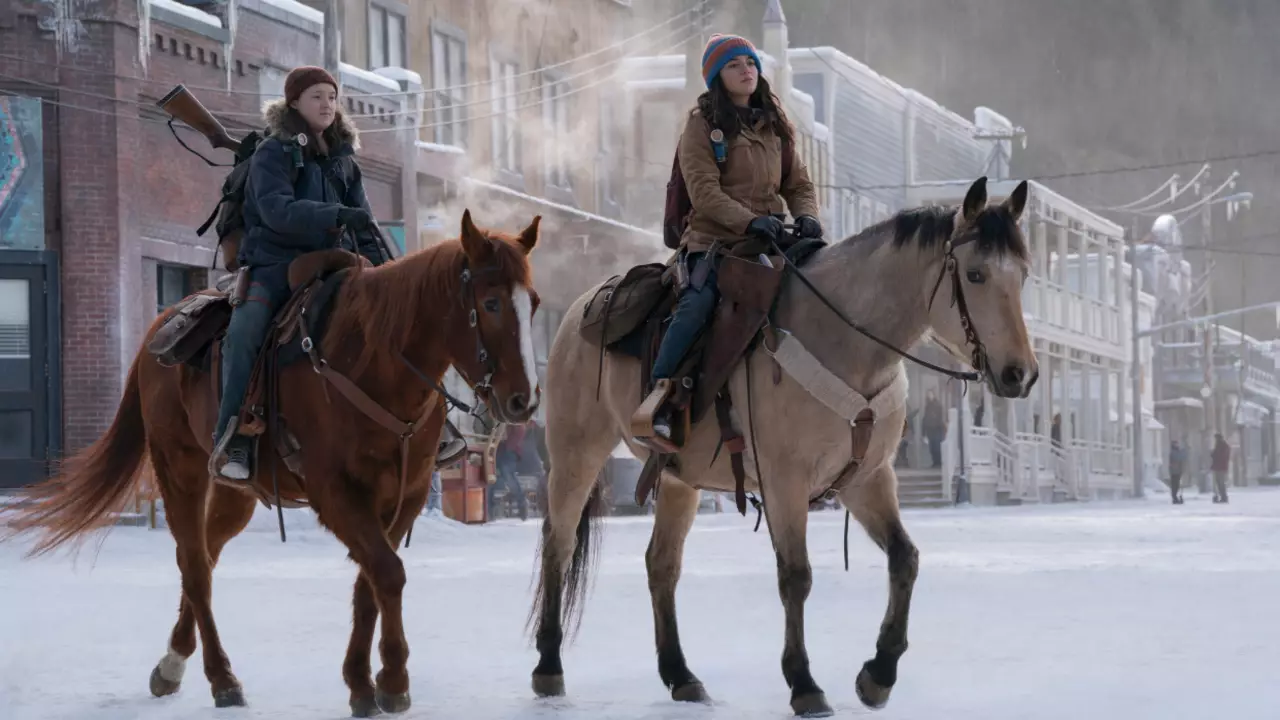As anticipation builds for the second season of HBO’s acclaimed series *The Last of Us*, the show’s creators are teasing significant narrative shifts that will diverge from the source material. Set to premiere this April, the new season promises to deliver a fresh experience for both devoted gamers and new viewers. Showrunner Craig Mazin and fellow creator Neil Druckmann have shared key insights into the direction of Season 2, hinting at a departure from the linear storytelling that characterized the original game.
In a revealing interview, Mazin clarified that while they intend to honor the spirit of the game, they will not strictly adhere to its timeline. Instead, the narrative will explore themes and events from a perspective that they believe serves television storytelling more effectively. “We certainly are going to mess around with time the way it was in the source material,” Mazin disclosed, emphasizing the creativity that is being employed to craft an engaging narrative. These changes raise questions about how familiar themes will be rendered anew, inducing both excitement and trepidation among fans.
Druckmann, who also played a pivotal role in the story development of the game, echoed Mazin’s sentiments regarding the structure of the new season. While maintaining an air of mystery, he suggested that evolving the storytelling dynamics will allow for better character exploration and emotional depth. “I can’t even outline where we’ve landed because that reveals too much,” he teased, noting that he and the team opted to experiment with different approaches before settling on the final structure. This experimentation reflects a commitment to producing a fresh and unexpected journey for fans, fostering a sense of intrigue about the narrative choices to come.
The anticipation surrounding the cast has sparked considerable discussion as well. Notably, the character of Abby, a pivotal figure in *The Last of Us: Part II*, will be portrayed by Kaitlyn Dever in the series. However, Mazin confirmed that Dever will not undergo a physical transformation to mirror the character’s appearance in the game, which raises important questions about how the show will tackle character authenticity and representation. This decision suggests a shift in focus away from physicality towards deeper emotional portrayal, allowing the narrative to take precedence over mere visual fidelity.
Moreover, the announcement of new characters adds another layer of complexity to the season. With one character mentioned in the original games slated for introduction, alongside an entirely new addition to the cast, fans can expect a rich expansion of the narrative universe. This move points towards an ambitious endeavor to intertwine new threads while honoring the established story, setting the stage for potential surprises that may resonate emotionally with viewers.
Interestingly, Mazin has expressed an awareness of the controversy that Season 2 may ignite among fans of the game. In a candid acknowledgment of the challenge of adapting beloved material, he stated that the creative team is committed to pursuing the story that feels right rather than simply pleasing audiences. “We don’t operate to either make people happy on social media or avoid making them upset,” he noted, reinforcing the philosophy that true art sometimes evokes mixed reactions.
Given the historical context of adaptations, the balance between faithfulness to the source and creative liberty is a delicate dance. As fans gear up for the new season, it’s clear that Mazin and Druckmann are both excited and apprehensive about the impact of their decisions, but they seem dedicated to crafting an experience that expands upon the existing lore rather than rehashing it.
April is poised to be a monumental month for video game adaptations, with *The Last of Us* reverting to fans’ screens alongside anticipated films like *Minecraft* and *Until Dawn*. With all eyes on HBO, the pressure to deliver an authentic and unexpectedly thrilling season looms large. Meanwhile, as the gaming community anticipates the sequel’s release, buzz surrounding *The Last of Us Part 3* grows alongside the remastered versions of the original titles. The synergy between game and television adaptations exemplifies a broader trend, promising a robust exchange of narratives and creative processes that could engage even those unfamiliar with the series.
As the launch of Season 2 approaches, it signifies not only a continuation of a powerful story but a commitment to storytelling evolution. Armed with the lessons of the past and an eye toward novel narrative possibilities, *The Last of Us* aims to captivate audiences anew, creating a dialogue that transcends the traditional boundaries of gaming and television. With all the excitement in the air, one thing is certain: April will be a month that resonates for its powerful stories, character developments, and the ever-evolving landscape of adaptation.


Leave a Reply